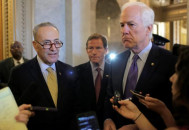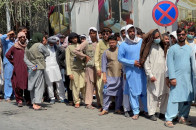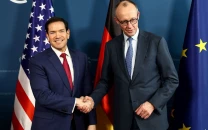Talks with the Taliban
After years of fighting, US & Afghan officials have reached the conclusion that a deal with Taliban is the only way.

These Taliban figures were reportedly released after negotiations between Islamabad officials and the Afghan High Peace Council. The most senior of those released is thought to be a former militant commander from eastern Afghanistan, though reports also say that three ex-Taliban governors have been released as well. The council has been engaged in attempting to negotiate a peace deal with the Taliban for months, but has not had much success. It has insisted that the major reason for this has been that the majority of the senior leaders have been held captive in Pakistan. After years of fighting, both the US and Afghan officials appear to have reached the conclusion that a deal struck with the Afghan Taliban is the only way to secure peace in a territory that remains inherently unstable, with militant activity on the increase. The concern, of course, is for the future of Afghanistan after the withdrawal of US forces at the end of 2014 — a date that is not too far.
But there is some irony in all this. Pakistan has repeatedly come under attack from both the US and Kabul for backing militant elements but it could well argue that it, too, has adopted such measures for the sake of maintaining peace in its country. After all, Pakistan needs calm just as badly as Afghanistan does. The issue is becoming a highly complex one. In principle, negotiating with militants, as Kabul is doing, is a dangerous game. They have never proved very trustworthy in the past and handshakes tend to slip after a while. Pakistan has already dealt with this strategy of the Taliban. The two countries need to work together to combat militancy, and perhaps, devise a common strategy to do so.
Published in The Express Tribune, November 17th, 2012.



















COMMENTS
Comments are moderated and generally will be posted if they are on-topic and not abusive.
For more information, please see our Comments FAQ